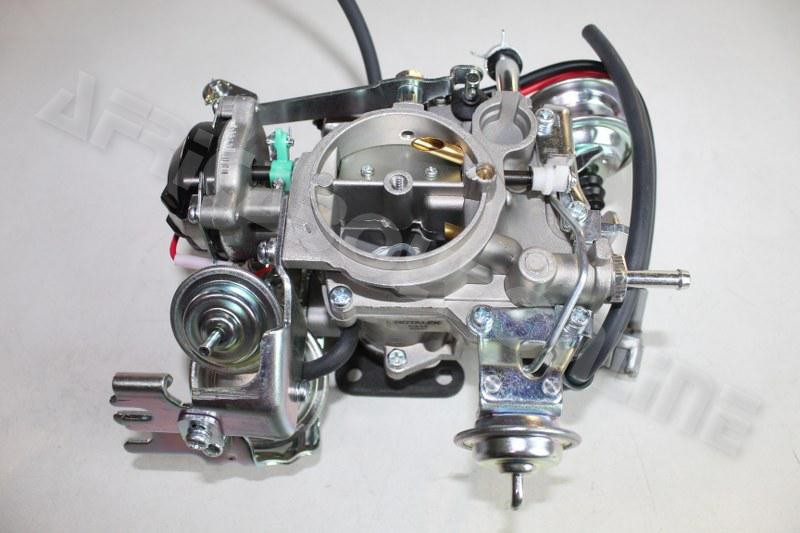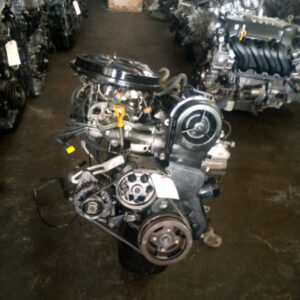Toyota Tazz: A Compact Car That Offers Big Value and Long-Term Durability
Toyota Tazz: A Compact Car That Offers Big Value and Long-Term Durability
Blog Article
Explore the most up to date Fads in Engine Modern Technology Through Tazz
In the rapidly developing landscape of vehicle modern technology, Tazz stands at the forefront, highlighting significant developments in engine systems that prioritize both development and sustainability. tazz. From hybrid engines that enhance fuel performance to the appearance of hydrogen fuel cells, the trends shaping contemporary powertrains are not only improving efficiency yet also attending to important environmental challenges. As the industry continues to press borders, it is vital to consider exactly how these advancements will certainly influence future transportation remedies and the more comprehensive effects for international power intake. What exists in advance in this crucial makeover?
Crossbreed Engine Innovations
Crossbreed engine innovations stand for a critical shift in auto innovation, incorporating the benefits of internal combustion engines with electric propulsion systems. This assimilation not just boosts gas efficiency however also minimizes emissions, conference increasingly rigid ecological policies. By making use of both energy resources, hybrid engines can optimize performance, supplying power when needed while saving gas during much less requiring driving conditions.
Current developments in crossbreed technology include enhancements in battery performance and regenerative braking systems. These advancements allow for higher power recuperation during deceleration, which can be rerouted to aid in velocity or power auxiliary systems. Moreover, suppliers are focusing on lightweight materials and small layouts to make the most of the effectiveness of crossbreed powertrains.
The advancement of plug-in crossbreeds has actually additionally increased the marketplace, enabling drivers to charge their cars using conventional electric outlets. This function commonly permits substantial all-electric array, more lowering dependancy on typical gas. tazz. As the vehicle sector proceeds to progress, hybrid engine modern technologies are anticipated to play a critical duty in linking the space in between traditional cars and fully electric versions, giving a transitional remedy that deals with diverse consumer needs and preferences
Advances in Electric Powertrains
The automotive landscape is rapidly developing, with electric powertrains becoming a leading pressure in sustainable transportation. Advances in electrical automobile (EV) technology are significantly boosting efficiency, customer, and performance experience. Key technologies include improvements in battery chemistry, which have actually increased power density, minimized charging times, and prolonged overall battery life.
Solid-state batteries, for instance, promise to change the marketplace by supplying greater security and performance compared to typical lithium-ion cells. Advancements in regenerative braking systems are making it possible for vehicles to recuperate power throughout deceleration, contributing to general performance.
In addition to battery innovation, electrical motor layouts are becoming a lot more innovative. Innovations such as integrated motors and advanced thermal administration systems are aiding to maximize power delivery and decrease weight, eventually improving lorry characteristics.

Jointly, these breakthroughs emphasize the commitment to shift towards cleaner, more reliable transport services, positioning electrical powertrains at the center of vehicle advancement.
The Rise of Hydrogen Fuel Cells
Significantly, hydrogen fuel cells are acquiring traction as a sensible option to conventional internal burning engines and battery electric vehicles. This modern technology takes advantage of the chemical energy stored in hydrogen, transforming it into electricity via an electrochemical reaction with oxygen. The primary result of this process is water, making hydrogen gas cells an ecologically friendly alternative with no emissions at the tailpipe.

Automakers are significantly investing in hydrogen fuel cell innovation, recognizing its potential for long-range applications and fast refueling abilities that equal standard gas. In addition, fields such as heavy-duty transport and public transit are particularly well-suited for hydrogen fuel cells, where battery electric solutions may fail due to weight and range limitations.
As research and investment remain to increase, hydrogen gas cells are positioned to play a substantial duty in the future landscape of tidy transport and energy services.
Enhancements in Internal Combustion Engines
Advancements in internal burning engine (ICE) innovation are transforming typical cars to meet modern-day environmental criteria and performance assumptions. Direct gas injection, for instance, enables for better atomization of gas, leading to more total combustion and improved power output.
In addition, turbocharging has obtained prominence, permitting smaller engines to supply higher efficiency without the weight of bigger engines - tazz. This innovation not just increases performance but additionally adds to reduce gas consumption. click now Variable shutoff timing systems are also being fine-tuned, making it possible for engines to adapt to numerous driving conditions for enhanced torque and responsiveness
In addition, making use of light-weight products in engine building is coming to be basic, additional boosting fuel effectiveness by lowering overall car weight. Engine control devices (ECUs) are increasingly advanced, making it possible for real-time changes that optimize performance and discharges.
These improvements jointly signify an essential change in ICE innovation, straightening with international sustainability goals while still offering the performance motorists anticipate from their lorries. As the industry evolves, these enhancements proceed to form the future of typical automotive engineering.
Future Trends in Engine Effectiveness
Considerable improvements in engine performance are prepared for as suppliers concentrate on incorporating cutting-edge technologies to meet stringent environmental regulations and consumer demands. The change in the direction of electrification, crossbreed systems, and different gas is improving the auto landscape, driving technologies that boost gas economic situation and lower exhausts.
Among the key trends is the implementation of advanced products and making methods. High-strength alloys and lightweight composites add to minimized automobile weight, hence boosting general effectiveness. Furthermore, the adoption of turbocharging and variable shutoff timing modern technologies enables enhanced power outcome from smaller engines, further enhancing gas economic climate.

Verdict
Finally, the exploration of engine technology reveals considerable developments that prioritize sustainability and performance. Technologies in crossbreed engine systems, electric powertrains, and hydrogen fuel cells demonstrate a dedication to decreasing emissions while boosting performance. Improvements in interior burning engines and an emphasis on light-weight materials contribute to total engine effectiveness. As the auto sector proceeds to evolve, these patterns will play a vital role fit a cleaner and even more lasting future for transportation.
From crossbreed engines that maximize fuel efficiency to the introduction of hydrogen fuel cells, the patterns forming contemporary powertrains are not just enhancing performance however also dealing with important environmental challenges.Hybrid engine developments stand for an essential shift in vehicle modern technology, incorporating the advantages of inner burning engines with electric propulsion systems.Additionally, turbocharging has obtained importance, permitting smaller engines to provide higher performance without the weight of bigger engines. In addition, the fostering of turbocharging and variable shutoff timing modern technologies enables for improved power result from smaller engines, further enhancing gas economic climate.
Enhancements in inner combustion engines and an emphasis on lightweight materials add to overall engine performance.
Report this page